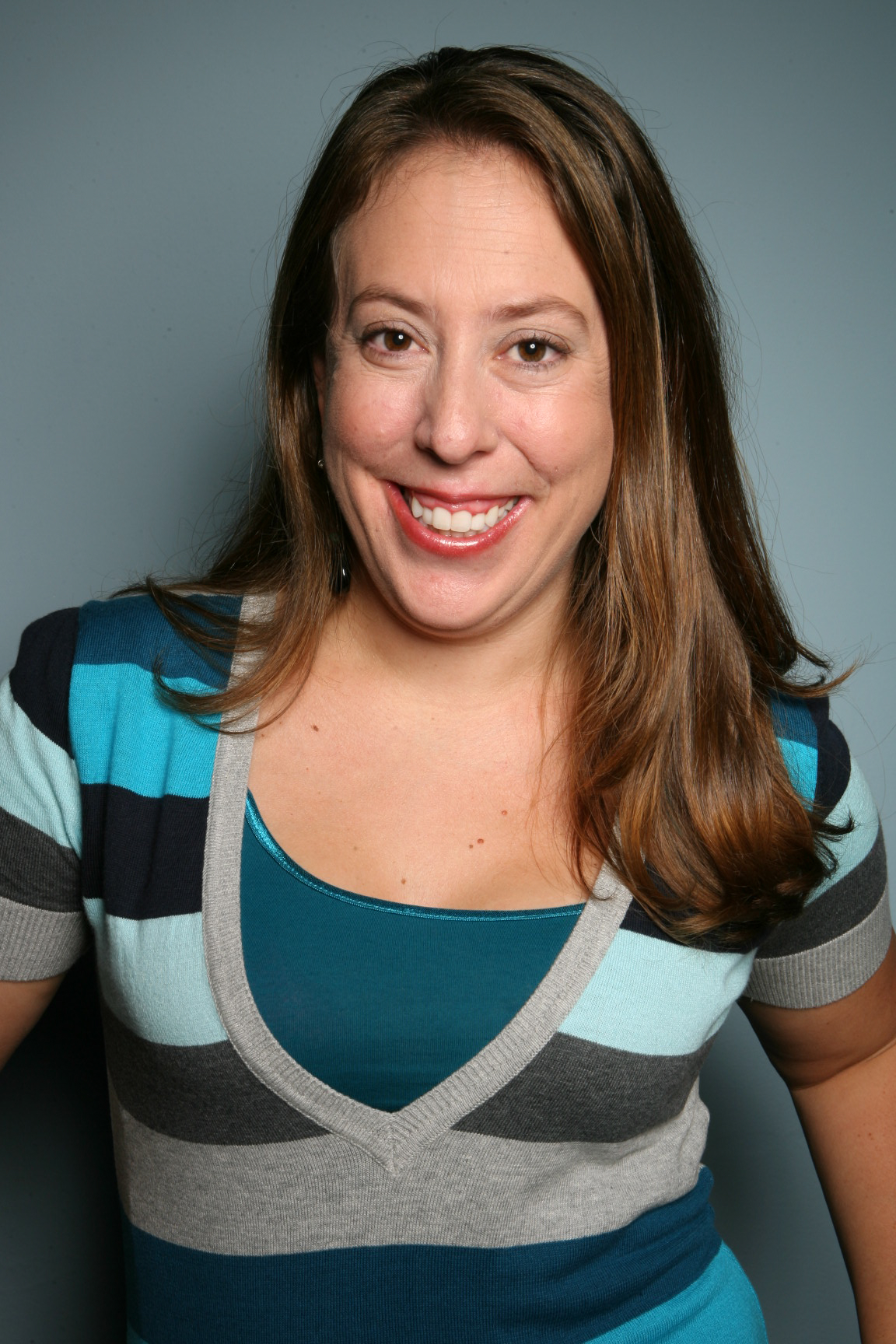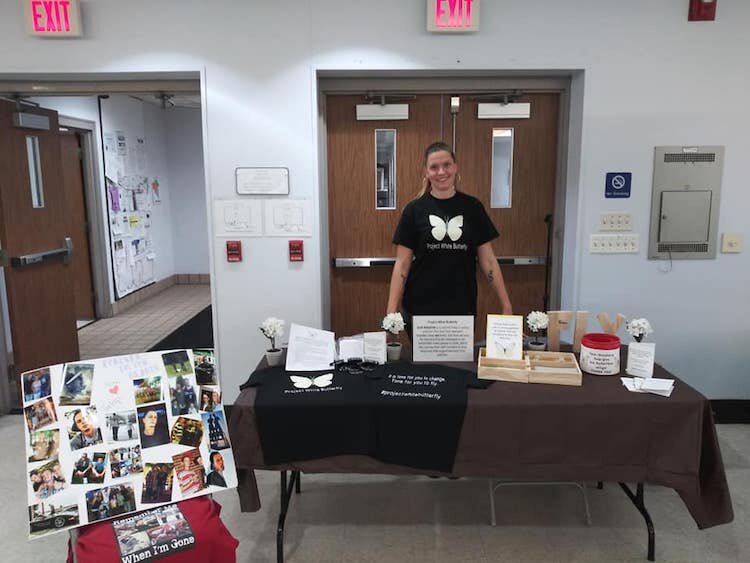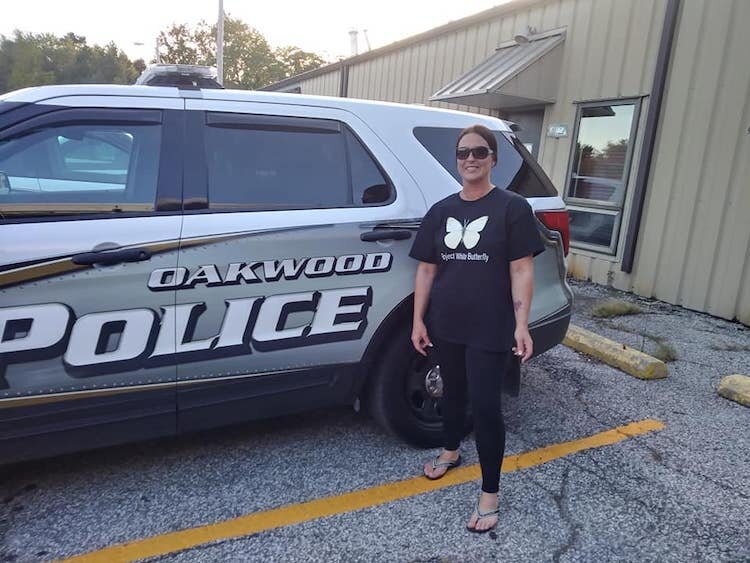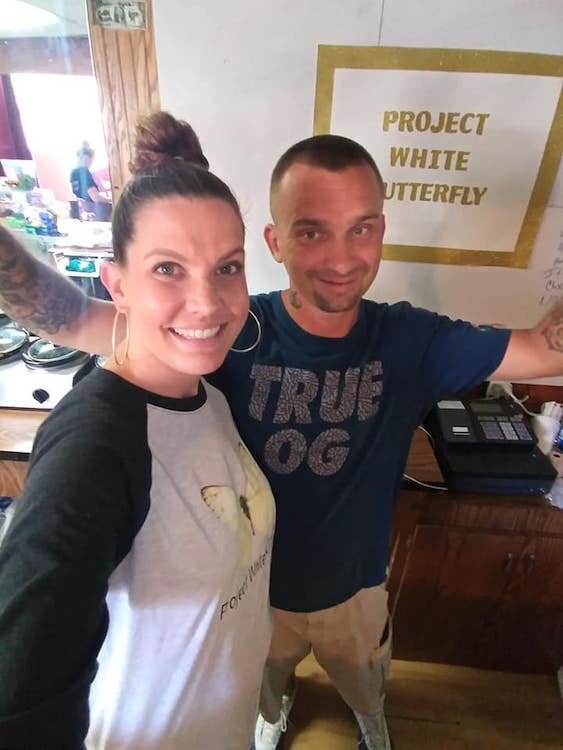From heroin to heroine: How Project White Butterfly is lifting up the local addiction community
Not enough heroin addiction stories end in recovery, but Sara Szelagowski’s experience shows that not only can it happen, but that one person can spark hope and the will for sobriety in others going through the struggle.
In late August, Szelagowski launched Project White Butterfly—a grassroots project designed to spread personal, handwritten messages of encouragement to people struggling with addiction. Szelagowski also runs the “Butterfly Support” group on Facebook, which has 2,655 members.
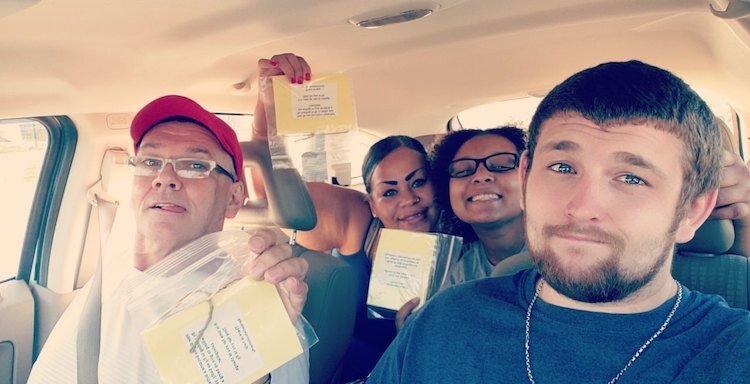 “One of the reasons I created Project White Butterfly is to show addicts that changing the direction of your life is possible,” she says. “I used to dedicate every movement I made and thought I had to getting drugs in my body, and today I am free to live life without those chains.”
“One of the reasons I created Project White Butterfly is to show addicts that changing the direction of your life is possible,” she says. “I used to dedicate every movement I made and thought I had to getting drugs in my body, and today I am free to live life without those chains.”
Without the Matt Talbot for Women treatment program, her story probably would have had a different ending, Szelagowski says. During the winter of 2015-2016, she spent 72 days at the Gordon Square-based addiction treatment center after being arrested and receiving a court order to complete inpatient treatment.
“My disease had progressed from alcohol and weed, to Adderall, to Percocet and Valium, to Oxycontin, and eventually to heroin and crack,” shares Szelagowski, now 30 years old. “Rarely did I ever stop to look at the direction my life was taking—I just wanted more. [At Matt Talbot], my mind had time to clear from the blinding effects of drug use. I was able to truly disconnect from the dark world I had been living in and regain some motivation to live a better life.”
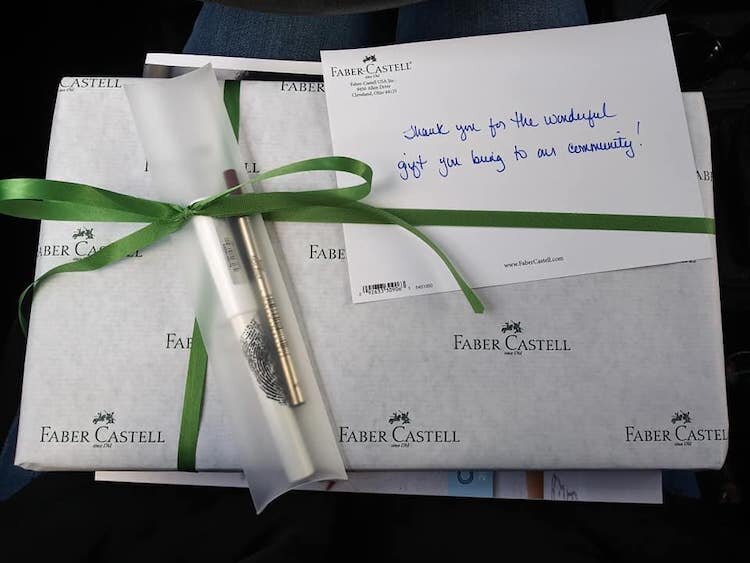 That’s precisely why Szelagowski has chosen the Matt Talbot for Women center as one of the first recipients of Project White Butterfly’s efforts. On Tuesday, Dec. 24, Szelagowski will deliver Christmas meals, handwritten notes containing medallion coins, and small gifts (such as journals, socks, and hygiene products) to the center’s residents.
That’s precisely why Szelagowski has chosen the Matt Talbot for Women center as one of the first recipients of Project White Butterfly’s efforts. On Tuesday, Dec. 24, Szelagowski will deliver Christmas meals, handwritten notes containing medallion coins, and small gifts (such as journals, socks, and hygiene products) to the center’s residents.
The gift bags will also include ballpoint pens provided by Faber-Castell, which has also donated 70 Project White Butterfly “card kits” that supporters can buy to spread hope in their own communities.
“Handwritten notes, to me, are powerful because they are personal,” says Szelagowski. “Our mission is to remind those in active addiction that they have not been forgotten. They are loved, and there is hope for recovery through encouraging and loving notes placed in cards, which also contain phone numbers for local resources that support recovery.”
Additionally, on Friday, Dec. 13, Szelagowski will deliver 150 cards to the Northeast Ohio Pre-Release Center, where she will speak at a Heroin Anonymous meeting and share her story of addiction and recovery. "Naturally, I want to share some cards with them [containing] loving messages and inspiration because this is part of my recovery," says Szelagowski. "I made it out of the darkness, and I want everyone I can reach with these cards to know that they can, too."
Along with helping those dealing with addiction, Project White Butterfly also aims to provide their family and friends with resources and support. On Monday, Dec. 16, Project White Butterfly will host a free training on how to use Narcan at the Garfield Heights Fire Department, and all attendees will be given a free Narcan kit from Project DAWN (Deaths Avoided with Naloxone).
Szelagowski knows firsthand what it’s like to lose a loved one to addiction—in fact, Project White Butterfly is named for her late brother-in-law, who died of a drug overdose at 30 years old.
“[The day he died], I remember seeing this white butterfly around the yard, all afternoon … and it made me feel reassured that Justin was free,” shares Szelagowski. “I chose to call this mission Project White Butterfly because the butterfly has become such a symbol of peace for me. The butterfly is also the universal symbol of transformation.”
Looking forward, Szelagowski hopes to create an in-person meeting for locally based members of the “Butterfly Support” group—which has attracted members from 15 states and three countries so far. She sees it as a natural extension of the rapidly growing online group, where people regularly make requests for detox rides and share crucial support, resources, and insights.
"[Best-selling author] Johann Hari shared his opinion that 'the opposite of addiction is community, and I absolutely believe that," says Szelagowski. "While using [drugs], we are so isolated and disconnected from society and human interaction that community is something we are thirsting for when we get sober. I had no idea when I started this that so many people would find it helpful, and it warms my heart continuing to see it grow."
